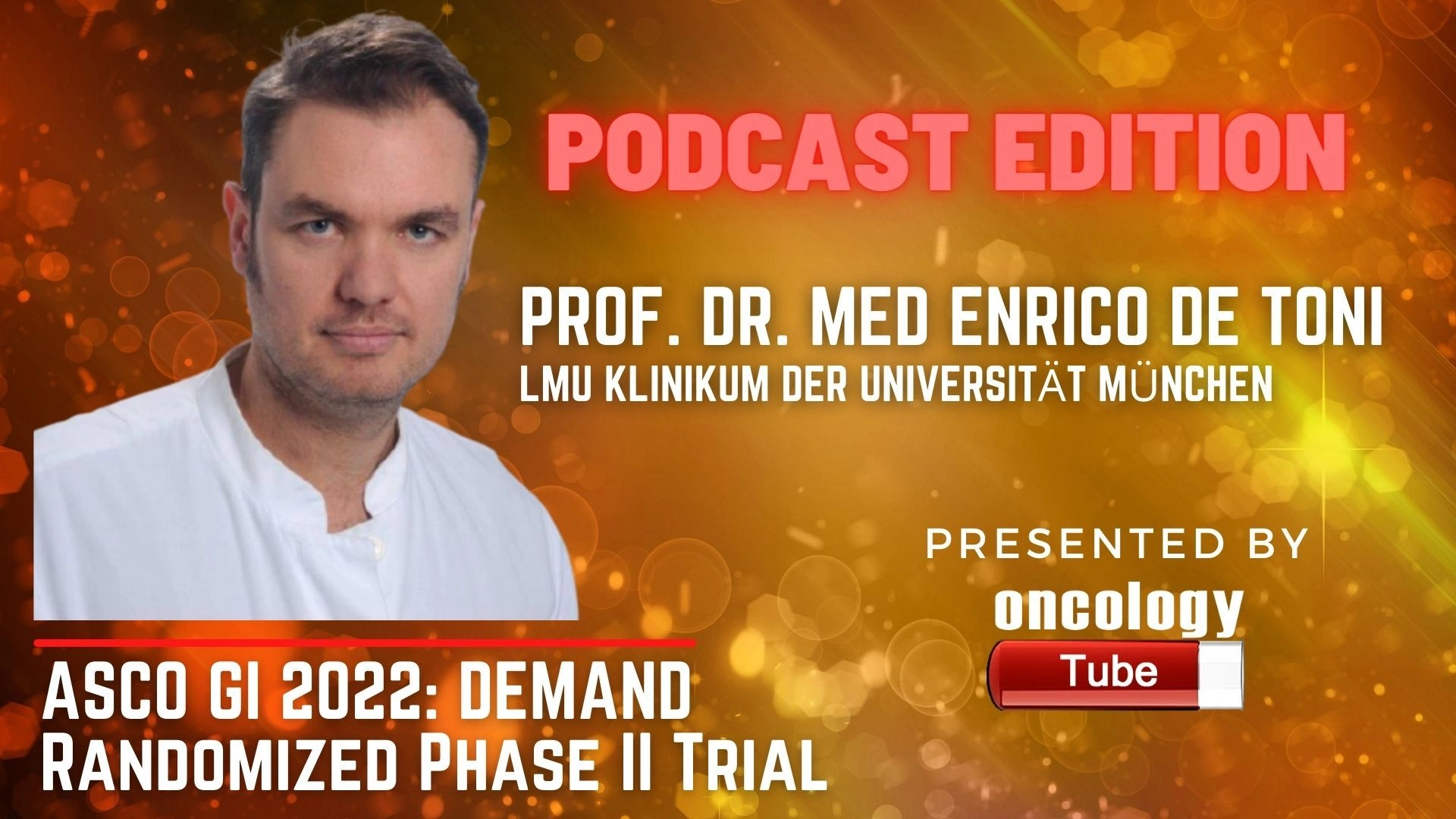Prof. Dr. med. Enrico de Toni, Medical Clinic and Polyclinic II at LMU Klinikum der Universität München. In this video, he speaks about the ASCO GI 2022 Abstract – Atezolizumab and bevacizumab with transarterial chemoembolization in hepatocellular carcinoma: The DEMAND randomized phase II clinical trial.
Â
Origins:
The first approved immunotherapeutic regimen for the first-line treatment of patients with advanced hepatocellular carcinoma is atezolizumab with bevacizumab (HCC). The efficacy and tolerability of this regimen suggest that it could be used in combination with transarterial chemoembolization to treat patients with intermediate-stage HCC (TACE). In non-responders to TACE, the combination of TACE with atezolizumab and bevacizumab may increase response and tumor control while also preventing disease progression. Early immunotherapy response may also lower the number and amount of TACE cycles required to achieve tumor control, reducing collateral damage to the liver parenchyma and preserving liver function. Immunotherapy should be started first to allow circulating lymphocytes to enter tumor lesions. The DEMAND trial looks at the efficacy of TACE and immunotherapy in intermediate-stage HCC, as well as the best treatment sequence.
Methodologies:
This investigator-initiated, multi-center, randomized, open-label phase 2 trial is the first to assess the safety and efficacy of atezolizumab plus bevacizumab in patients with unresectable HCC before or in combination with TACE. 106 patients (Barcelona Clinic Liver Cancer Stage A not amenable to curative therapy or B, Child-Pugh A or B7, Eastern Cooperative Oncology Group performance status 0 or 1, no prior TACE) will be randomized in a 1:1 ratio to receive either TACE and synchronous treatment with atezolizumab and bevacizumab (Arm A, 53 patients), or TACE and synchronous treatment with atezolizumab and bevacizumab ( (Arm B, 53 patients). For up to 24 months, patients are treated in the study until there is no longer any therapeutic benefit or unacceptable harm. The use of local ablation is permitted for the treatment of lesions that cannot be targeted selectively enough by TACE or for the treatment of new lesions. The 24-month survival rate is the primary outcome, with objective response rate, progression-free survival, safety, and quality of life as secondary objectives. Translational research focuses on immune cell phenotyping in tumor and peripheral blood, circulating tumor DNA, and changes in the diversity of the gut microbiome in order to develop predictive biomarkers. A total of 21 of 106 individuals have been randomized across 15 German hospitals. NCT04224636 is the number for the clinical trial.

